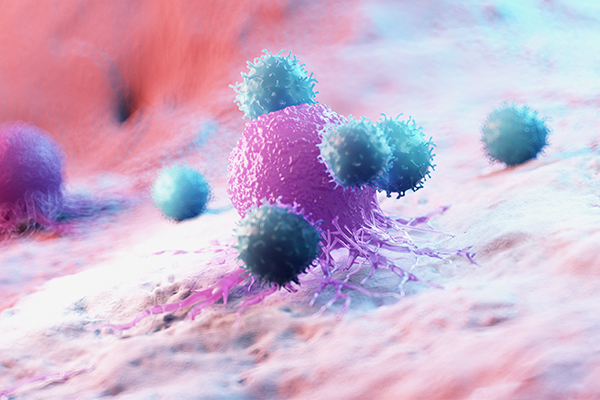Engineering Adoptive T Cell Therapy for Solid Tumors
In this webinar, Dr. Kristin G. Anderson, Research Associate from the Greenberg lab at the Fred Hutchinson Cancer Research Center, discusses engineering T cells to improve survival in the immunosuppressive tumor microenvironment.
Watch the webinar to learn about:
- Hurdles that T cells must overcome to beat ovarian cancer, including anti-tumor T cell death which results in tumor escape
- Engineering T cells with a protein that converts a death signal into a survival signal to prolong survival of tumor-bearing mice compared to T cells with only a TCR
- How xCELLigence RTCA instruments can be used to directly measure T cell killing in vitro in a simple and high throughput workflow
Abstract
The 5-year survival rate for people diagnosed with ovarian cancer remains below 50%, and better treatments are urgently needed. T cells engineered to recognize and kill tumor cells have shown great success in hematologic cancers and have the potential to improve outcomes for ovarian cancer patients. We have shown that T cells engineered to express a T cell receptor targeting the tumor/self-antigen mesothelin kill ovarian cancer cells, controlling tumor growth and prolonging survival of tumor-bearing mice. But, our experiments also revealed hurdles that T cells must overcome to beat ovarian cancer. Many tumors escape the immune system by causing antitumor T cells to die. We generated a protein that converts a death signal into a survival signal and showed that T cells engineered with this protein prolong survival of tumor-bearing mice more than T cells with only a TCR. Many solid tumors escape T cell killing using the same stop signs as ovarian cancer, so our findings may be useful for improving immune therapies for other types of cancer.
About the Speaker
Dr. Kristin G. Anderson is currently a Research Associate at the Fred Hutchinson Cancer Research Center in Seattle, WA in the lab of Dr. Philip D. Greenberg. Dr. Anderson received her Ph.D. in Immunology from the University of Minnesota, where she studied T cell responses to lung infection and developed a method that is now widely used in the field to discriminate and isolate intravascular from tissue leukocytes. Her current research focuses on developing molecular engineering strategies to improve T cell killing in ovarian cancer, with the ultimate goal of translating her findings into treatment protocols. She leads a team that uses samples to identify immunosuppressive features in the tumor microenvironment, then uses mouse models of cancer that recapitulate these features to evaluate strategies that improve the migration, persistence, and function of genetically engineered anti-tumor T cells.


